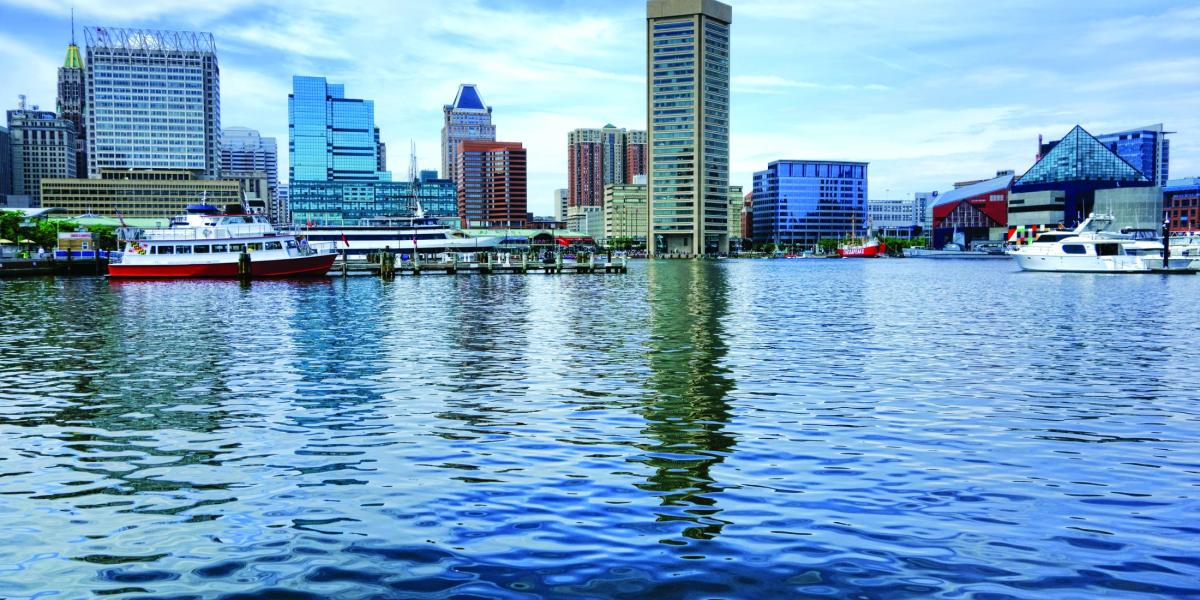Sponsored Content
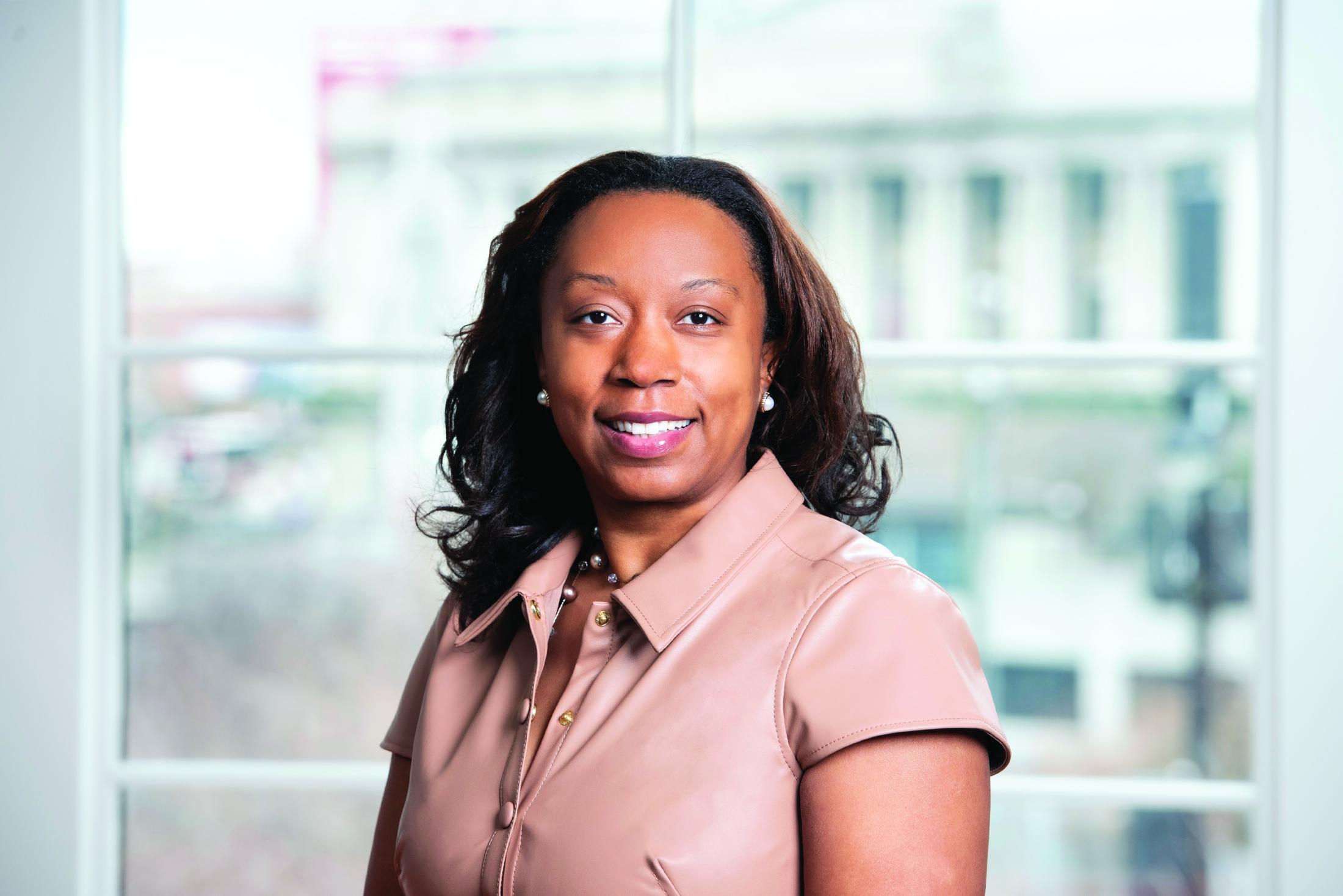
The Baltimore Community Foundation (BCF) is much more than an institution.
It is a community of people who are passionate about Baltimore and purposeful in their philanthropy. Every day, this community multiplies many individual contributions into collective impact.
I reflected on the power of this community many times over the past year as BCF marked its 50th anniversary. Half a century ago, proud Baltimoreans founded BCF to meet the challenges of their day—the shuttering of industries, flight from the urban center and rising disinvestment and inequality.
They could have stopped there, rallying partners and leveraging support to address urgent needs. But fortunately, they had the foresight to create a permanent philanthropic endowment to meet needs they could not begin to imagine. They engaged a wide range of individuals, families, businesses and the public sector to establish funds for charitable giving, too.
Today, BCF continues to respond to urgent and ever-evolving needs—from the digital divide to the youth mental health crisis, to the gun violence epidemic and much more. With a bird’s-eye view of the challenges, staff deeply engaged in local communities to identify solutions, and expertise in all kinds of giving options, the Baltimore Community Foundation is uniquely positioned to help anyone and everyone make a difference in the community they love.
This is giving by and for the people of Baltimore.
Last year alone, the BCF community distributed more than $30 million for everything from afterschool programs, arts institutions and food assistance to mental health support, workforce training and violence intervention to name just a few. We invested more than $6 million in affordable housing developments, small business loans, clean energy installations and other projects that offer community and economic development benefits alongside financial returns. We opened the doors on our first street-level headquarters—the embodiment of our belief in deep community engagement.
As we look ahead, we are honored to have more than 1,000 fundholders and donors by our side, continuing to believe in the power of community to build a better Baltimore.
But we know that more is needed. If you are not already a member of the BCF community, I hope you will consider joining. Baltimore needs you and BCF is here to help.
Sincerely,
Shanaysha Sauls, Ph.D.
BCF President and CEO
PASSIONATE, PURPOSEFUL PHILANTHROPY
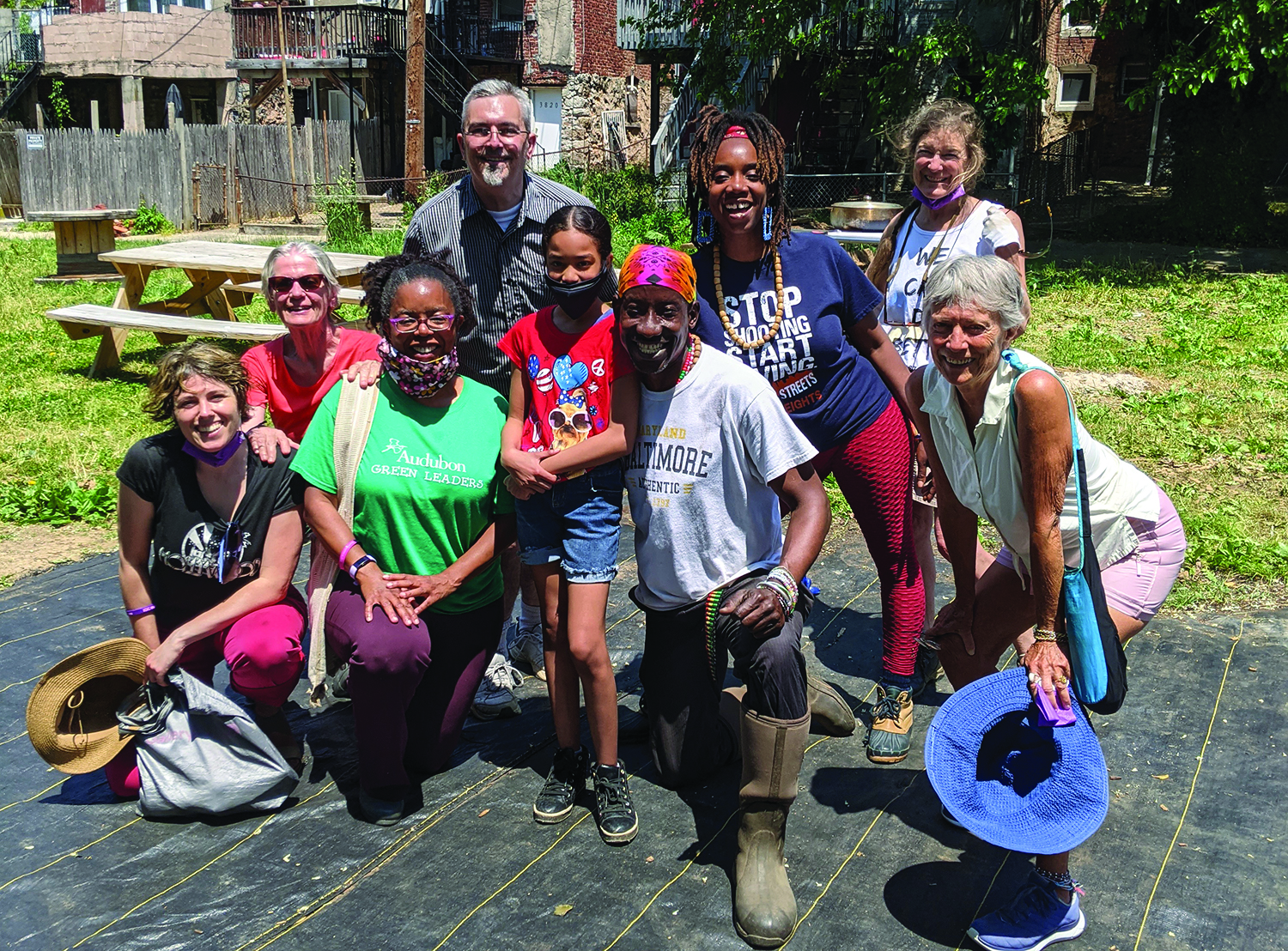
The Baltimore Community Foundation (BCF) helps donors who want to make an impact in Baltimore by connecting them with meaningful and effective causes and organizations.
W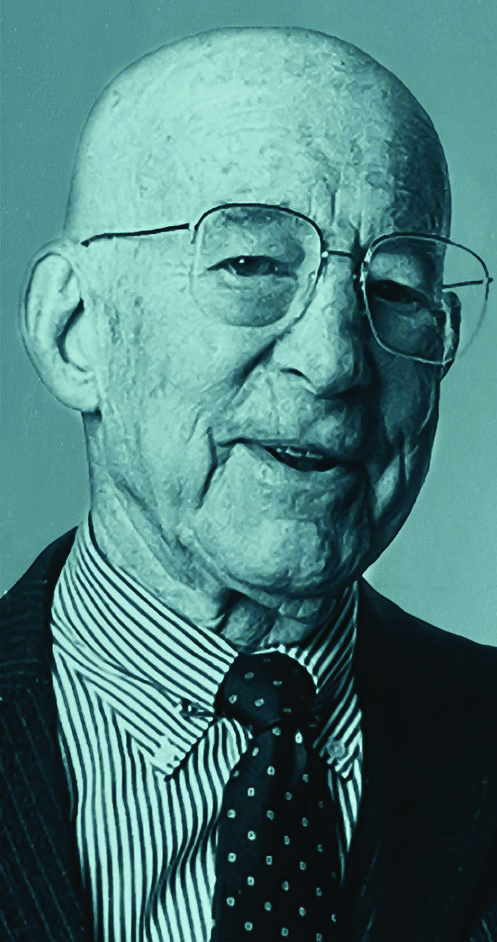 HAT IS A COMMUNITY FOUNDATION?
HAT IS A COMMUNITY FOUNDATION?
A community foundation is a public charity that helps individuals, families and businesses who want to make an impact in their region through donor-advised funds and pooled assets. With a birds-eye view of the community’s needs and expertise in all forms of giving, a community foundation makes philanthropy easy, organized and meaningful. Community foundations partner with leaders and doers to identify and address challenges facing the local community.
50 YEARS CHAMPIONING PHILANTHROPY IN BALTIMORE
The world’s first community foundation, the Cleveland Community Foundation (now the Cleveland Foundation), was founded in Ohio in 1914 by Frederick Harris Goff, a banker and attorney. Goff wanted a way for everyone, not just the wealthy, to coordinate charitable giving for the betterment of his city. His plan caught on, and community foundations were established across the U.S. and Canada.
The Baltimore Community Foundation (BCF) was started by Robert Levi (right), former president of the Hecht Co. department stores and retired vice chairman of Mercantile-Safe Deposit and Trust Co. The year was 1972 and Levi could see the city was in decline. A robust supporter of downtown, Levi brought together fellow civic leaders and colleagues, mostly in Baltimore’s banking world, to create BCF, a nonprofit that would galvanize the collective, cooperative good to address and fund issues facing Baltimore.
GROUNDED IN HISTORY, LOOKING TO THE FUTURE
Since its founding, BCF has been a convener, bringing together stakeholders to tackle important issues, an incubator for innovative nonprofits, and an advocate for Baltimore and its communities. The mission remains much the same as it was 50 years ago: To inspire donors to achieve their charitable goals from generation to generation and to improve the quality of life in the Baltimore region through grantmaking, enlightened civic leadership and strategic investments. Our strategic grants, impact investments, special initiatives, and advocacy support our vision of a Baltimore with a growing economy where all have the opportunity to thrive, with a particular interest in strengthening schools and making neighborhoods safer, cleaner, greener and more vibrant.
Baltimore needed an organization that could provide a bird’s-eye view of things that should be done to make Baltimore a good place to live and could bring together the resources to make it happen. We needed a community foundation.”
— Robert Levi
BCF Founder
50 YEARS OF LASTING IMPACT
For more than half a century, BCF has been a convener, incubator, and advocate for Baltimore, tackling tough issues, spotlighting solutions, and mobilizing support.

BCF AS CONVENER
Bringing together people, programs, and policymakers to address Baltimore’s significant challenges is a BCF hallmark. There are numerous examples throughout BCF’s 50-year history, but perhaps none better underscores its ability to foster collaboration than its response to the COVID-19 pandemic. On March 12, 2020, the day Maryland Gov. Larry Hogan closed schools due to the pandemic, BCF made a plan. As staff connected with nonprofit organizations to understand needs on the ground, BCF’s board allocated $50,000 to create the COVID-19 Evolving Community Needs Fund and begin making grants. By the end of March, individuals, foundations and corporations had contributed more than $1.2 million to the Fund. As quickly as donations were made, they were granted out, helping thousands of families struggling with unemployment, social isolation and school closures. Simultaneously, BCF partnered with the United Way and Baltimore’s Promise to convene the COVID-19 Response Funding Collaborative of Greater Baltimore, connecting more than a dozen local foundations and families around a streamlined application process for nonprofits seeking emergency relief grants. For the next two months, the group met weekly via Zoom to review applications. While each funder made their own decisions, the transparent process ensured grants were spread equitably and leveraged to address the most urgent and overwhelming needs. BCF ultimately raised and distributed more than $3.3 million for COVID relief, providing for basic needs, broadband access, domestic violence intervention, remote learning devices, mental health support, tutoring, youth enrichment programs, and much more.
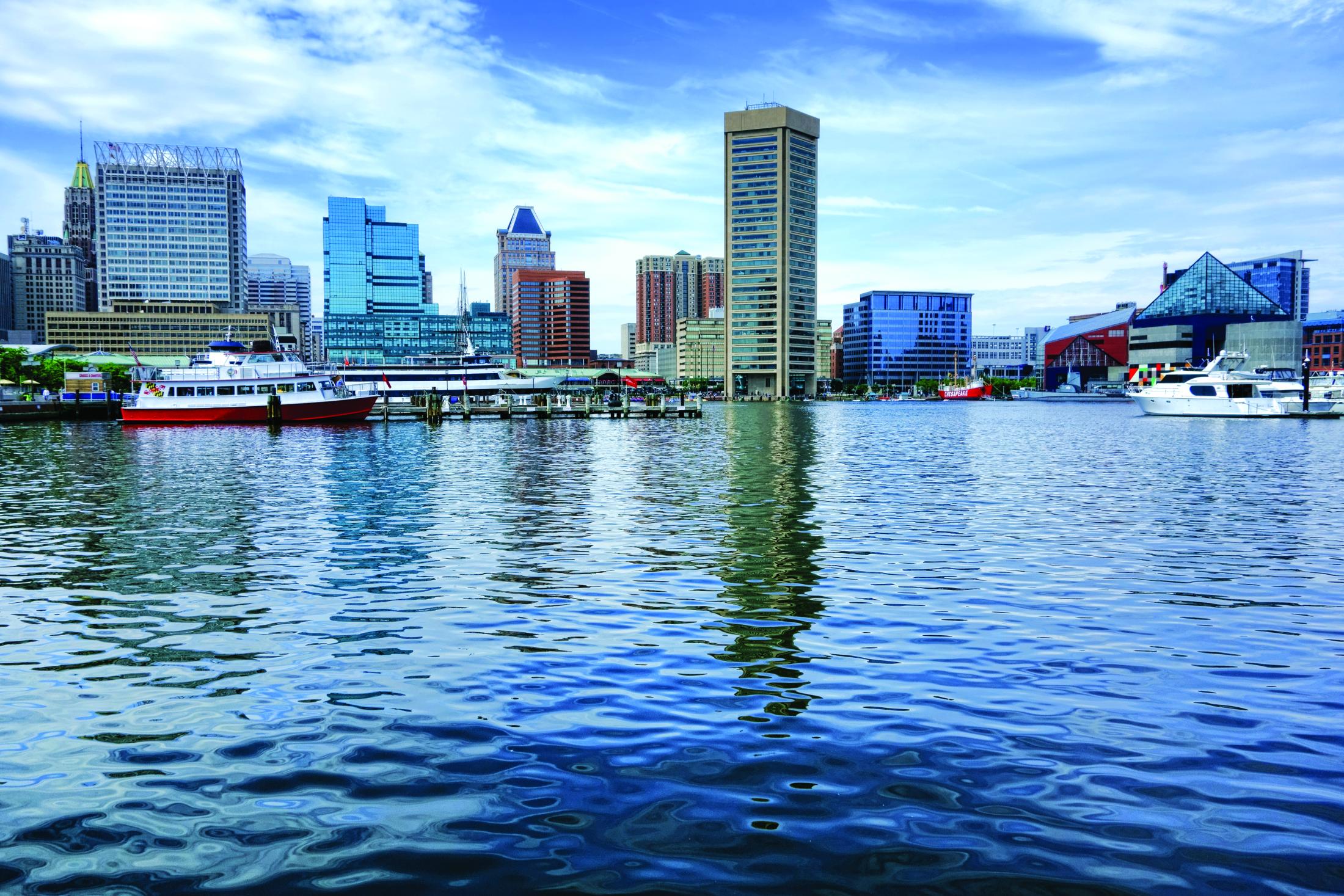
BCF AS INCUBATOR
BCF has been a go-to source for new ideas and an incubator of startup nonprofits and programs, seeding ideas, connecting visionaries with funding, and offering wise counsel to create sustained change. By incubating innovation, BCF helps nurture the shared vision of what Baltimore can be.
For example, when Mike Hankin founded the Waterfront Partnership of Baltimore in 2005, BCF was there, offering knowledge of how the city worked and connecting him to potential funders.
Hankin, a BCF board member (2004-2011) and passionate environmentalist, worked with government, businesses, and community partners to restore Baltimore’s Inner Harbor and create a clean, green, safe, sustainable, and thriving urban waterfront. Today, the nonprofit is a global example of what happens when a city gets behind an innovative idea, from events and waterfront parks to floating wildlife wetlands and the internationally famous Trash Wheels cleaning the Inner Harbor.
Beyond Waterfront Partnership, BCF served as the launchpad for the Central Maryland Transportation Alliance, Great Kids Farm, Healthy Neighborhoods, the Middle Grades Partnership and countless other organizations and initiatives.
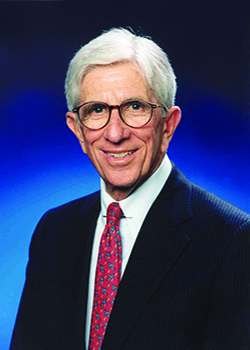
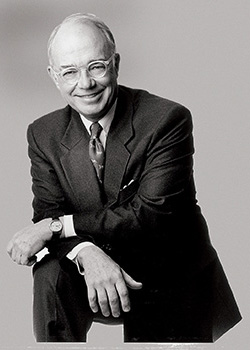
BCF AS ADVOCATE
BCF’s longstanding role as advocate is central to its mission and vision. For decades, BCF has worked behind the scenes or out in front to rally support for causes and issues that must be addressed. With deep insight into the region’s needs, expertise on innovative solutions, and a platform as a respected civic leader, BCF leverages its corporate, government and philanthropic networks to address issues. Whether writing op-eds, meeting with elected officials, commissioning research to inform policy solutions, or funding grassroots organizing efforts, BCF focuses on making solutions happen.
One example of the lasting impact of BCF’s advocacy is the Lucas Collection—a trove of 19th century French masterpieces by Edouard Manet, Mary Cassatt, and Eugene Delacroix, among others, amassed by Baltimore collector George Lucas. In 1995, the Maryland Institute College of Art asked the court to declare it had the right to sell the Lucas Collection, which had been on longterm loan to the Baltimore Museum of Art (BMA) and the Walters Art Museum. The BMA, Walters, and State of Maryland went to court to block the sale, kicking off a contentious legal battle. BCF board chair Edward “Eddie” K. Dunn Jr. (below, left) and Calman J. “Buddy” Zamoiski Jr., BCF vice chair (right), quietly worked behind the scenes to find a solution. For two years, BCF tapped into its vast networks, eventually brokering a deal that kept the Lucas Collection in Baltimore and created peace among the arts community. Many of Baltimore’s most revered pieces of art are on display for all to enjoy, thanks in no small part to BCF’s advocacy.

This was absolutely a no-ego, collective, cross-sector effort. The level of collaboration was mindblowing. It was a very scary, exhausting time, but it was also inspiring to see the way people worked together.
— Shanaysha Sauls
BCF President and CEO
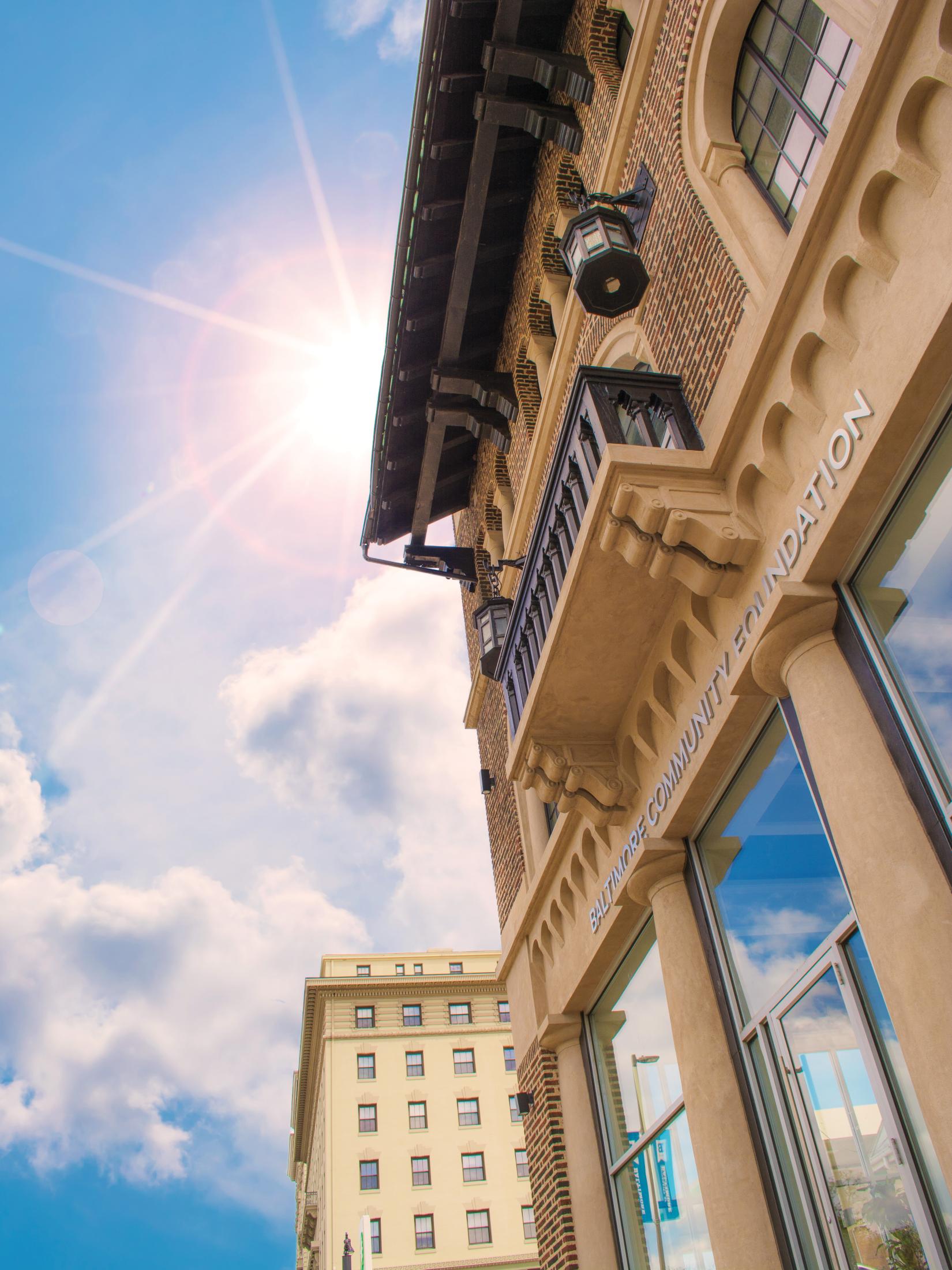
BRIGHTENING BALTIMORE’S FUTURE
BCF has always been responsive to the needs of the city; today it is helping effect positive change by supporting stronger schools and safe, clean, green and more vibrant neighborhoods.
NEW ERA, NEW OPPORTUNITIES
As a community foundation, it is important that BCF be visibly present and accessible, so in 2022 it opened its first street-level headquarters at 11 E. Mount Royal Avenue. This new home signals a new era for BCF, one in which it has aligned its strong philanthropic position and capacity for relationship building with the needs of Baltimore. Guided by a new strategic plan, BCF will contribute to moving the needle in Baltimore through public-private partnerships and community investments in areas of greatest need:
Safer, cleaner, greener and more vibrant neighborhoods.
BCF is putting the “community” in a community foundation with grants for resident-led projects and programs that improve neighborhoods block by block and inspire younger generations along the way. From support for the Upton Planning Committee as it revitalizes an historic commercial corridor in West Baltimore, to café lights and street-scaping in Butcher’s Hill, to home improvement grants in Dundalk and chili cook-offs in Ednor
Gardens, BCF is empowering residents to make their vision for their community a reality.
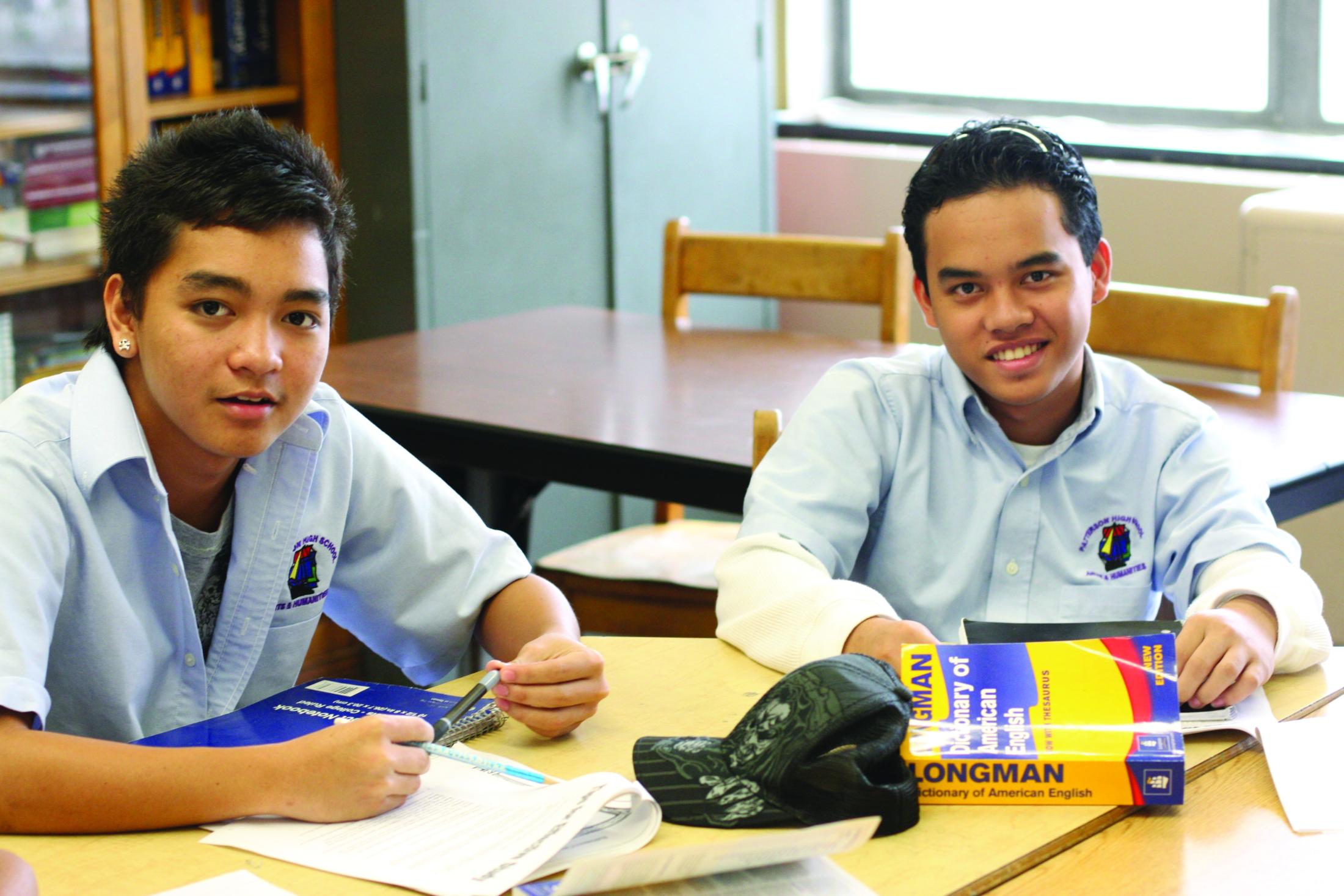
Strong public education.
The next generation of leaders are students in public schools.
BCF supports students, faculty, and parents in creating positive school environments that will foster learning and wellbeing.
BCF is putting its funding efforts into kindergarten readiness programs with wraparound support like Judy Centers, longstanding organizations like Child First Authority, which works directly with schools to promote academic achievement, social and emotional wellbeing, and parent leadership, and the Fund for Educational Excellence, which shares BCF’s belief that strong public schools are key to a healthy, productive city.
Accessible broadband.
The world lives online but for many, the internet highway is blocked. BCF’s efforts early in the pandemic to convene business, civic and grassroots leaders and state and local elected officials to connect students to the internet and to devices led to advocating and rallying philanthropic support to hire Baltimore’s first director of broadband and digital equity. Most recently commissioning research to understand barriers to affordable internet, BCF is actively engaged in closing the profound equity gap that remains in the digital divide.
Gun violence reduction.
Baltimore City cannot fulfill its potential until we overcome one of our most significant challenges: gun violence. BCF is leveraging its relationships and resources to support systemic efforts to reduce non-fatal shootings and homicides in Baltimore City, such as Baltimore City’s Group Violence Reduction Strategy (GVRS), which targets repeat offenders and aligns the efforts of law enforcement agencies and social service providers. So far, the GVRS pilot has seen a 20% reduction in homicides and non-fatal shootings in West Baltimore. Another significant partner tackling gun violence in their community is the P.E.A.C.E. Team, which deploys credible messengers to diffuse conflict and offer support to high-risk individuals, including job training, employment opportunities and expungement in the York Road Corridor.
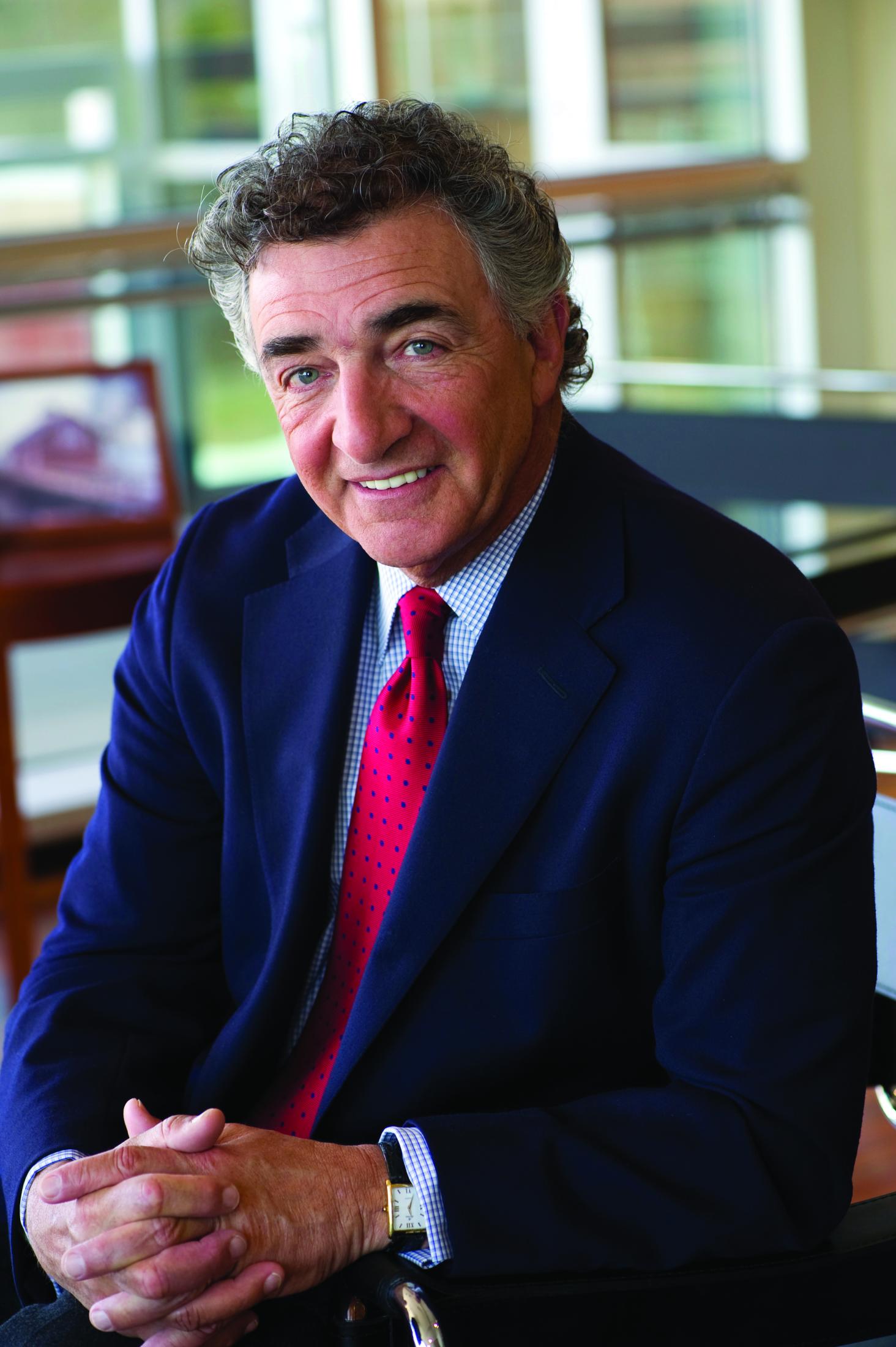
‘‘Baltimore Community Foundation is one of the most extraordinary assets in this community. It has been one of the great honors of my life to lead its board.”
— Tom Bozzuto,
BCF Board Chair
Invest For More.
The only thing better than investing in a community foundation is redoubling the impact of those funds. While philanthropy has long operated on a model of donations-in grantsout, impact investing—investments made with the intention to generate positive, measurable impact alongside a financial return—is changing that paradigm. BCF entered the impact investing space in 2018 with the launch of its Invest for More program.
From 2018-2021, BCF committed four percent of its assets annually to Invest for More. Those assets grew from $174 million at the start of 2018 to $306 million by the end of 2021. By that time, BCF had invested $5.5 million in affordable housing, mixed-use commercial and residential space, green energy infrastructure, and other transformative programs and projects.
BCF has become a leader in the impact investing space and, in 2022, raised its invested assets commitment to five percent. It also innovated a new type of donor-advised fund to allow fundholders to co-invest with BCF and has seized unconventional opportunities, such as small business loans and micro credit-building loans, with the potential to make the local economy more vibrant and inclusive. Impact investment funds have been put to work on programs that support healthy neighborhoods, small business lending, and affordable housing and more.
